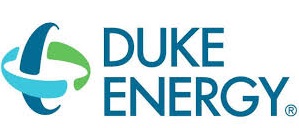
BY STEPHEN DE MAY
From the grocery store to the gas pump, North Carolinians are all feeling pinched by the rising costs of many of the products we rely on daily.
 The energy sector is not immune – over the past year, costs for the fuel Duke Energy needs to produce energy have tripled. Thankfully, carbon-free nuclear provides half of our energy in the Carolinas, and North Carolina is fourth in the nation for solar, so fuel expenses have not impacted customer bills as drastically here as in other regions of the country.
The energy sector is not immune – over the past year, costs for the fuel Duke Energy needs to produce energy have tripled. Thankfully, carbon-free nuclear provides half of our energy in the Carolinas, and North Carolina is fourth in the nation for solar, so fuel expenses have not impacted customer bills as drastically here as in other regions of the country.
But with summer heating up and air-conditioning systems running longer, electric bills will inevitably increase, so I wanted to take this opportunity to share some resources that can make a difference.
Customer resources that can help
For example, one free option is Budget Billing to ensure your wallet isn’t hit harder in summer and winter. Duke Energy calculates an average bill based on your past usage, keeping your bill predictable from month to month. We also offer a variety of energy-saving tips and efficiency programs, including the Home Energy House Call, a free in-home assessment that provides information about your energy use and personalized strategies to save you money.
Then there are income-qualified programs for both homeowners and renters, including replacement of inefficient refrigerators and other old appliances, heating/cooling system replacement, and weatherization services through either Duke Energy or the state weatherization program. And for those most in need, we offer the Share the Light Fund – details about that and additional resources can be found at duke-energy.com/bill-help.
Beyond Duke Energy, other government programs and nonprofit agencies supply aid for a wide range of needs, including help with utility bills. To see if you may qualify for local assistance programs, dial 211 or visit nc211.org, an information and referral service provided by United Way of North Carolina.
New affordability collaborative will bring more aid
Over the last year, we’ve also been hard at work in the Low-Income Affordability Collaborative, a stakeholder-driven initiative involving Duke Energy and government agencies, consumer advocates, low-income agencies and environmental groups, all led by a third-party facilitator.
Working together, the members of this collaborative are identifying and designing sustainable new offerings that can help our most at-risk customers in a long-term manner – ideas such as monthly bill credits and the expansion of energy efficiency initiatives. And while these potential offerings are geared toward our lowest-income customers, it’s worth noting that energy efficiency programs help reduce power generation costs for all our customers.
In the coming years, even as we make critical grid investments to improve reliability and accelerate the clean energy transition, please know that we remain fully focused on keeping energy costs as low as possible for our customers. And if you need assistance, we’re here to help.
Stephen De May is president of Duke Energy’s utility operations in North Carolina, which serves approximately 3.6 million electric retail customers and 792,000 natural gas customers.




With great power, comes great current squared times resistance.